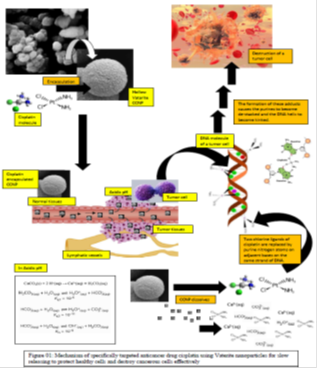
Shashiprabha P. Dunuweera
University of Peradeniya, Sri Lanka
Title: Encapsulation of Anticancer Drug Cisplatin in Porous Vaterite Nanoparticles for Targeted Delivery and Slow Release
Biography
Biography: Shashiprabha P. Dunuweera
Abstract
Statement of the Problem: Cis-platin is a commonly used anticancer drug which is the first of such platinum-based anticancer drugs developed. The cis configuration enables the binding of the coordination complex to two DNA strands and thereby crosslinking the DNA strands triggering the cells to die in a programmed manner. Cisplatin is administered to patients intravenously as a short-term infusion in normal saline for treatment of solid malignancies. It is used to treat various types of cancers which include sarcomas and some carcinomas such as small cell lung cancer, ovarian cancer, lymphomas, bladder cancer, cervical cancer, and germ cell tumors. It is found that cisplatin is particularly effective against testicular cancer with a cure rate of 10-85%. However, cisplatin is associated with numerous side effects which include nephrotoxicity, neurotoxicity, nausea and vomiting, ototoxicity (hearing loss), electrolyte disturbance and haemolytic anemia.

Most of these side effects can be either reduced or overcome if cisplatin could be encapsulated in a suitable host material and directed towards cancer cells targeted manner and allowed to release only in minimum sufficient dose in uniform manner. In order to accomplish these targets, we have prepared hollow nanoparticles of calcium carbonate and encapsulate cisplatin in them and studied their release kinetics in buffered solutions of defined pH values. Since cancerous cells are more acidic (pH range 5.00 – 6.00) compared to normal cells (pH range 7.00 -8.00), and that calcium carbonate is stable in neutral pH media while decompose slowly in low acidic conditions, the choice of calcium carbonate nano-carrier host is highly justified for targeting the encapsulated drug to cancerous cells for slow-release of the drug only in the vicinity of the cancer cells.

